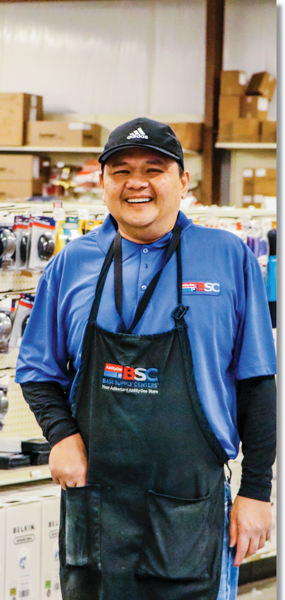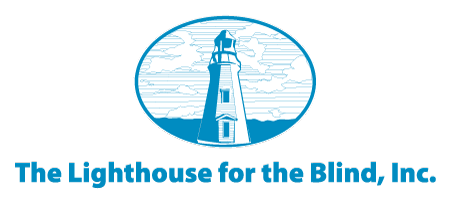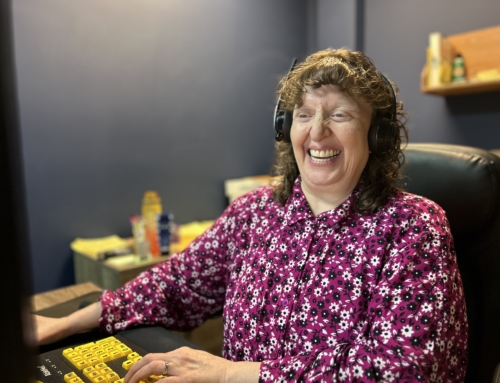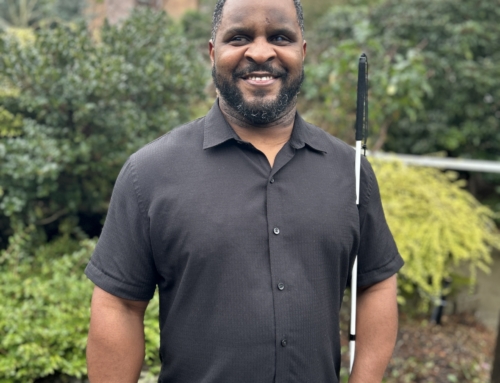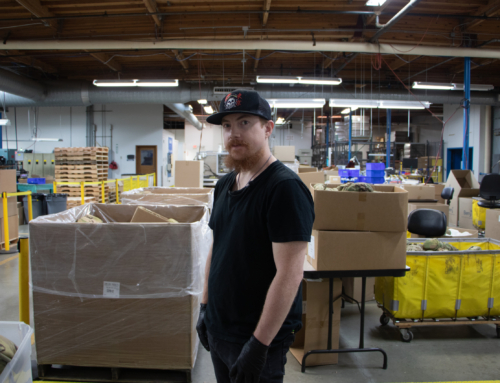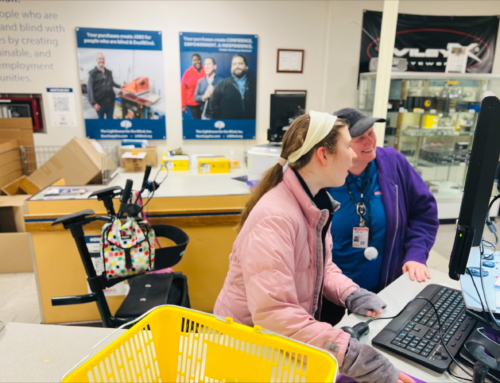Mike Soriano found more than just a job when he began working at the AbilityOne Base Supply Center (BSC), he found hope.
Mike was in his thirties when he lost his vision. He first noticed his vision declining while driving at night.
“I took it hard,” he says of the diagnosis he received in the 90s. “At first I didn’t believe it. I went to a specialist for a second opinion, and they confirmed it.”
Mike has retinitis pigmentosa, a rare genetic disorder that causes a breakdown of cells in the retina. He was in Guam, where he grew up, when he got the news.
“It’s pretty hard when you have everything and you feel like it’s taken from you, “ Mike noted. “I used to do it all. I used to surf, I used to drive. My life was going downhill after I lost my eyesight. I almost took my life. I was drinking and taking drugs. I gave up.”
Life was looking bleak for Mike, but then a few things happened that helped him turn his situation around. His sister, who was in the Army at the time, encouraged him to move to
Washington state after she heard about the Lighthouse and the programs that are offered here.
He also met and married his wife, who he says is “my best friend; an angel.”
Mike had previously trained to become a heavy equipment operator and worked many years for the Public Works Department on a Naval base but once he arrived, he began learning new skills from the Washington State Department of Services for the Blind.
They helped him get a job with the Lighthouse in 2003, and he’s been employed here ever since. Mike has continued to build upon his skills in his time at the Lighthouse by participating in computer training at his BSC location.
His wife, his teenage son, and his job as a Stock Clerk at the North Fort BSC on Joint Base Lewis McChord keep Mike busy.
“Whatever comes into receiving, sometimes six to ten pallets, I handle it,” he says. “We can get pretty busy in there.”
Mike uses a Closed Circuit Television (CCTV) device to read the barcodes necessary to record incoming inventory. The device uses a camera on one side which produces a magnified image to the screen on the other side, which can be adjusted to show different colors, magnifications, and contrasts. Mike uses the device outside of work too.
“It’s my eyes,” he says fondly. “I can’t live without it.”
After getting a job at the Lighthouse, Mike was able to get his house through Tacoma/Pierce County Habitat for Humanity. He still volunteers for them in his time off. He uses his previous experience working in the construction industry, to continue giving back and helping others.
“I used to depend on government assistance,” he says, “but now I’m on my own two feet.”
He wants people to know that difficult challenges in life can be overcome.
“If you’re blind or visually impaired, don’t give up,” he says. “There’s always a second chance.”
